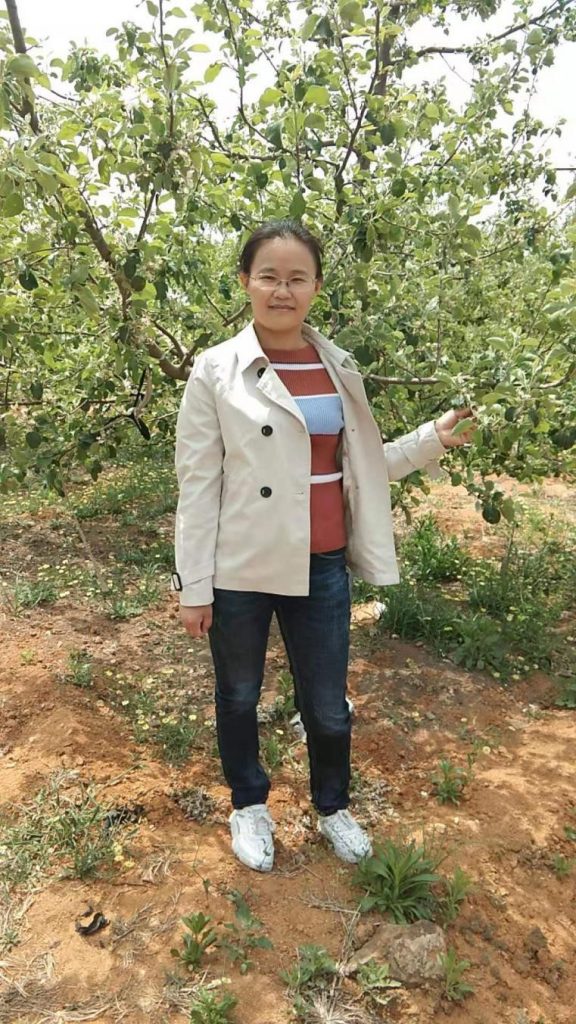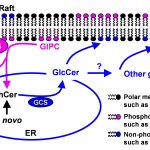Recognizing Plant Physiology author Dongjie Jia

 Dongjie Jia, first author of Genetic variation in the promoter of an R2R3−MYB transcription factor determines fruit malate content in apple (Malus domestica Borkh.)
Dongjie Jia, first author of Genetic variation in the promoter of an R2R3−MYB transcription factor determines fruit malate content in apple (Malus domestica Borkh.)
Current Position: Lecturer, College of Horticulture, Qingdao Agricultural University
Education: 2014.09-2018.11, Ph.D., Pomology, College of Horticulture, China Agricultural University, Beijing, China;
2008.09-2011.07, Master, Pomology, College of Horticulture, Qingdao Agricultural University, Qingdao City, Shandong province, China.
Non-scientific Interests: Table tennis
Brief bio: I came to Institute for Horticultural Plants at China Agricultural University to study for my Ph.D. degree in September 2014. I was lucky to join Prof. Zhenhai Han’s Lab after rotation. My work focused on identification and validation of genes controlling apple fruit acidity and establishment of the genomic selection model, which was published (Jia et al., Plant Journal, 2018, 95:427-443). In December 2018, I started working in College of Horticulture of Qingdao Agricultural University. Our previous study identified an R2R3−MYB transcription factor named MdMYB44 that was a candidate gene in qtl08.1 (a major QTLs) of fruit malate content. In the present study, we established that MdMYB44 negatively regulates fruit malate accumulation by repressing the promoter activity of the malate-associated genes Ma1, Ma10, MdVHA-A3, and MdVHA-D2. Two single nucleotide polymorphisms (SNPs) in the MdMYB44 promoter, SNP A/G and SNP T/−, were experimentally shown to associate with fruit malate content. Among the four SNP combinations (AT, A−, GT, and G−), AT was associated with lower malate content, A− and GT were associated with intermediate malate content, and G− was associated with higher malate content. The TATA-box in the MdMYB44 promoter in the presence of SNP A enhances the basal activity of the MdMYB44 promoter. The binding of a basic-helix-loop-helix transcription factor MdbHLH49 to the MdMYB44 promoter was enhanced by the presence of SNP T, leading to increased MdMYB44 transcript levels and reduced malate accumulation. The two SNPs could be used in combination to select for sour or non-sour apples, providing a valuable tool for the selection of fruit acidity by the apple breeding industry. This research is important for understanding the complex molecular mechanisms of fruit malate accumulation and accelerating the development of germplasm innovation in apple species and cultivars.
姓名:贾东杰
职位:青岛农业大学园艺学院,讲师
教育背景:2014/09-2018/11 中国农业大学,园艺学院,果树学专业,博士
2008/09-2011/07 青岛农业大学,园艺学院,硕士
兴趣爱好:乒乓球
个人简介:2014年9月,我来到中国农业大学园艺学院,在韩振海教授、张新忠教师的指导下攻读博士学位。博士期间我的主要研究工作是苹果果实酸度基因挖掘验证及基因组选择模型的建立(研究结果发表在Plant Journal上,Jia et al., 2018, 95:427-443)。2018年12月,我入职青岛农业大学园艺学院,在前期研究基础上,进一步对位于第8号染色体的一个主效位点qtl08.1基因座内关键候选基因MdMYB44的功能和调控机制进行解析。该研究发现,MdMYB44通过抑制苹果酸相关基因Ma1、Ma10、MdVHA-A3、MdVHA-D2的启动子活性,负向调控果实苹果酸的积累。对苹果不同种质资源基因型分析发现,MdMYB44启动子区域的2个单碱基核酸多样性变异位点SNP T/−与SNP A/G通过组合成不同单倍型控制苹果酸含量,SNP T和SNP A组合成的单倍型中MdMYB44基因高表达引起低苹果酸含量,SNP −和SNP G的组合MdMYB44表达量低导致高苹果酸含量。并验证变异位点SNP T/−和SNP A/G对MdMYB44启动子活性的影响,最后鉴定与SNP T对应元件E-box特异性结合的转录因子MdbHLH49。该研究为深入研究苹果果实苹果酸积累的分子调控网络,开发苹果酸含量高效的分子标记,加速苹果分子育种进程具有重要意义。



